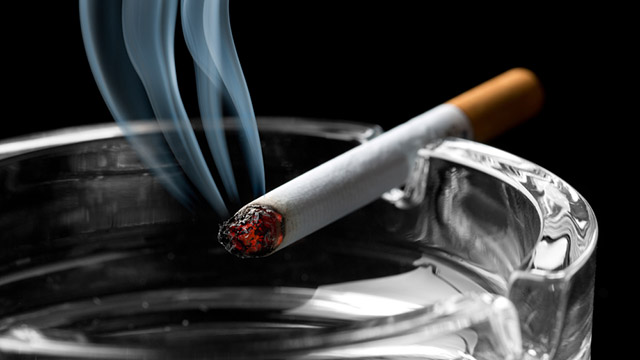Kwaku Addo, a 16-year-old student of a prominent high school in Accra expressed his dismay when I disclosed that every year, more than 5000 people in Ghana are killed by tobacco-related diseases and that half of all smokers will die from tobacco-related illness according to the latest Tobacco Atlas (2018).
Kwaku had never considered the health implications of his smoking habit. Just like many teenagers today, he was exposed to onscreen smoking imagery and was made to believe that smoking signified maturity, making it easy to join the craze.
A troubling development about Kwaku’s experience has to do with the accessibility and cost of cigarettes in Ghana. When asked how and where he got his cigarettes from, Kwaku responded, “I go to a shop near my home, and with less than a Cedi, I get to buy a stick and I am good to go.” “Of course, I pretend to be buying for an adult,” he added.
Ghana has failed significantly when it comes to the excise tax on the retail price of cigarettes. The minimum World Health Organisation (WHO) benchmark for excise tax on the retail price of cigarette is 70 percent. Ghana currently imposes an excise tax of only 13.02 percent on the retail price of cigarettes which is about 56 percent below the WHO benchmark, contributing significantly to the low price of cigarettes in the country. A single cigarette stick is priced between 20 pesewas to 70 pesewas in Ghana making it very accessible to the youth.
“Tobacco tax increases that result in higher tobacco-product prices are among the most effective tobacco control measures available,” according to the Tobacco Atlas. The Atlas also notes that higher prices are especially effective in reducing tobacco use in more vulnerable populations, like youth and people with lower incomes, because those groups are particularly sensitive to price increases.
Over 5,800 children (10-14 years old) smoke cigarettes every day in Ghana. “The number is expected to increase significantly as large tobacco firms turn their attention to Africa,” according to Dr. Steven V. Shongwe, the acting Director of the Non-communicable diseases (NCD) cluster at the WHO Regional Office for Africa.
This Principal Research Officer at the Ghana Health Service, Divine Darlington Logo revealed on the sidelines of the World Conference on Health or Tobacco in Cape Town that, there was no budgetary allocation in 2018 for the enforcement of the tobacco control law in Ghana.
“For the last five years, there has not been any money specifically allotted to tobacco control in Ghana. That has been part of the challenge in the effort to discourage young children from smoking. There are concerns of smuggling when it comes to increasing taxes on tobacco products,” he disclosed.
Kwaku, who began smoking at the age of 14 is now determined to quit the habit, but has no access to cessation counseling and has to rely on sheer willpower to quit the deadly habit. He tells me, “It has been a struggle for me to quit for the past six months. I tried a few times but gave up eventually because the urge was too strong. Moreover, my closest friend also smokes so it makes it difficult to quit, even though I want to.”
The economic cost of smoking in Ghana amounts to 97 million cedis in direct costs related to healthcare expenditures and indirect costs related to early mortality and morbidity according to the Tobacco Atlas. Increased tobacco tax revenues would strengthen domestic resource mobilization to help offset the costs to the Ghanaian economy as well as help government invest in tobacco control programs that can benefit the likes of Kwaku Addo.
Ghana can still do more to make the proven tobacco control tools work for its citizens’ well-being.
–
By: Gideon Sarpong | iwatchafrica.org


